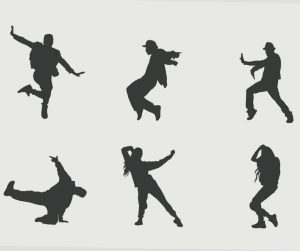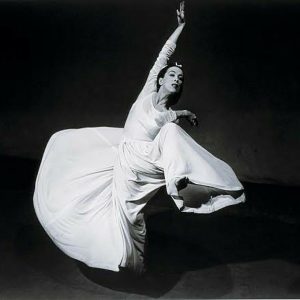Ways to make money as a dancer: For individuals with skill, commitment, and financial acumen, dancing may be a successful job in addition to being a passionate art form. There are several paths to take within the dance business, whether you’re a professional dancer aiming to optimize your income or an aspiring dancer seeking financial security while following your love. This article will provide you a brief overview of some of the methods that dancers might earn money.

Recommended: How to Build an Emotional Connection with a Woman
Top 10 Ways to make money as a dancer
1. Fitness instructor: Fitness instructors may earn dancers money. Many dancers have the physique, knowledge, and enthusiasm for movement to teach fitness courses. Dancers may specialize in dance-inspired fitness classes. Zumba, barre, cardio dance, aerial fitness, and other dance-based fitness programs are examples. Your dancing abilities may help you design interesting and efficient fitness routines for a broad spectrum of people.

Dance-based fitness instructors are in high demand in fitness studios and gyms. Join their teacher roster to teach regularly and get money. Studios may pay hourly or a portion of class costs. To be hired, network with local fitness centers, submit your CV, and highlight your dancing experience.
2. The dance administrator: Most people identify dance with performance or teaching. Dance administrators manage a company’s finances, operations, and logistics. They manage budgeting, scheduling, marketing, fundraising, event planning, personnel, teachers, and dancers. Small and big dance organizations need competent administrators to manage administrative chores.
This involves funds, rehearsals, auditions, contracts, marketing, and promotion. Dance administrators might work with dance companies on a contract or pay basis. Dance studios need managers too. Dance studio administrators schedule classes, collect fees, manage workers, maintain facilities, and provide customer service. Dance studio administrators usually get a salary or a share of revenues.
Recommended: Most profitable skills to learn in 2023
3. Start a YouTube Channel: Dancers may use YouTube to showcase their ability, gain a worldwide audience, and make money. YouTube lets dancers share videos, instructions, and choreography. YouTube’s Partner Program lets producers earn ad income. You may become a YouTube Partner if you have 1,000 followers and 4,000 view hours in the last year. After your channel is authorized, YouTube adds adverts on your videos and shares the money. Video views and interaction increase profits. You may work with brands as your YouTube channel expands.

Dancewear, fitness, dancing schools, and even music artists may want to work with you to advertise their goods. Paid promotions, sponsored content, and affiliate marketing may boost brand alliances and sponsorships. Partnerships should fit your brand and benefit your audience. Dancers may make YouTube videos for different audiences. Dance performances, choreography videos, lessons, challenges, vlogs about your dance career, and behind-the-scenes footage are examples. Create compelling material that highlights your style and expertise. Maintaining an audience requires consistent content uploads.
4. Write a book: Dancers may creatively and rewardingly share their experiences, expertise, and insights by writing a book. It lets you use your dancing skills to get money. Write a memoir on your dancing career. Share your struggles, successes, and lessons. Dance fans, aspiring dancers, and people interested in personal tales of endurance and creative improvement like this genre. Depending on your fame and following, you may get a publishing agreement with an upfront payment or self-publish to have more control over your work and revenue. Write a book on dance technique, training, or styles to share your technical experience.

Beginners to skilled dancers may use this. To develop dancing abilities, provide step-by-step directions, hints, exercises, and insights. Dance technique books are popular in studios, schools, and institutions. Write a book on a dance style or era’s history, development, and cultural impact using your dancing expertise. Explore the dance form’s history, major works, and social context. Dancers and dance historians will like this book. Write children’s books on dance, dancers, or movement if you love educating young children. Create your story with an artist. Parents, instructors, and dance schools like dance-themed children’s books.
Recommended: Oldest universities in the world
5. Become a Social Media Brand Ambassador: Brand ambassadors promote brands on social media. Instagram, TikTok, YouTube, and Facebook are essential for brand relationships. Showcase your dancing abilities and brand image with captivating content. Post engaging videos, photographs, and descriptions to establish a loyal and engaged following. Find your dancing specialty and audience. This might be a dancing style, a population (beginners, pros, kids), or a combination.

Understanding your specialty boosts your chances of successful partnerships with businesses that serve your target audience. Research brands that match your dancing style, values, and audience. Find dancewear, accessories, fitness, wellness, and performance brands. After finding suitable brand partners, send a well-written proposal explaining how your partnership would benefit both sides.
6. Create an e-course: Dancers may teach dance techniques and make money by creating an e-course. E-courses let you share your expertise online with a worldwide audience. Choose an affordable e-learning platform. Udemy, Teachable, and Thinkific are easy-to-use e-course platforms. These systems manage payments, course delivery, student communication, and student progress and engagement metrics. Find your dancing niche.
It might be dancing technique, choreography, performance abilities, or dance fitness. Target beginners, intermediate dancers, pros, or dance enthusiasts. Understanding your specialty aids e-course creation and promotion. Create great e-course material. Engage pupils using video, writing, audio, and interactive resources. Demonstrate dancing skills, choreography, step-by-step instructions, and professional advice. Clarity, conciseness, and visual appeal improve learning.
Recommended: Most famous people in the world currently
7. Consulting: Dancers may profit from their industry expertise by consulting. Consultants may advise dancers, groups, and corporations. Find your dancing specialty. Dance education, choreography, performance coaching, studio administration, event organizing, marketing, and other dance specialties are examples.

Finding your specialization helps you become an expert and attract customers. Market your consultancy services. Promote your services and connect with customers via social media, a professional website, and email marketing. Showcase your consulting worth with useful information, success stories, and client testimonials. Reach more people by working with influencers or dancing groups.
8. Private Lessons: Dancers may profit from individual classes. Private sessions let dancers concentrate on objectives, enhance technique, and meet individual requirements. Choose a dance specialty. Ballet, hip-hop, salsa, technical development, performance coaching, choreography, and dance fitness are examples. Identifying your specialty attracts pupils interested in your knowledge. Create a professional private lesson area. This might be a dancing studio, leased space, or a dedicated place in your house. Clean, safe, and fitted with mirrors and a sound system if needed.

Promote your private courses via multiple media to attract students. A professional setting helps pupils study. Use social media, develop a professional website or landing page, and post your services on dance directories or community boards. To grow your clientele, use your network, connect with nearby dancing schools, and give referral incentives.
Recommended: Differences Between Communism And Socialism
9. The dance journalist: Dancers who love writing may earn money by becoming dance journalists. Dance journalists cover performances, interviews, reviews, features, and industry news. Writing abilities are crucial for dance journalists. Write dance articles, reviews, and blogs frequently. Take journalism, creative writing, or arts criticism classes to improve your writing skills and acquire new methods. Start your own dance blog or website to manage your content and profit directly.
This platform accepts articles, reviews, interviews, and personal thoughts. Advertising, sponsored content, affiliate marketing, or premium content like online dancing classes or seminars may produce cash as your following expands. You may also write for freelancing magazines. Dance groups, festivals, and educational institutions need website, brochure, and program material. Directly offer your freelance dance writing services. Negotiate per-project or per-word remuneration.
10. Be A Music Video Extra: Music videos contain scripted dance sequences that need talented dancers to execute. Research dance music video directors, producers, and artists. Follow them on social media, sign up for newsletters, and be informed about casting calls and auditions. Network with dancers, choreographers, and industry experts for advice.
Watch for music video auditions and casting calls. Industry, social media, and casting websites post these chances. Attend as many auditions as possible to boost your chances. Perform a well-rehearsed dancing routine or freestyle. Dance portfolio. Include dance reels, performance videos, and applicable training and credentials. Casting directors will notice a well-designed, professional portfolio.
Recommended: Differences Between Subsistence and Commercial Agriculture
In conclusion, there are many ways to earn money and transform your love for dancing into a successful profession in the world of dance. Dancers have the chance to make a career while following their creative goals via performances, instruction, choreography, internet platforms, or business endeavors. You may prepare for a successful and satisfying path as a dancer, both artistically and financially, by seizing chances, being committed, and continually developing your talents. Prepare to enter the dance floor and start along an exciting route to financial success in the dance industry.

Edeh Samuel Chukwuemeka, ACMC, is a lawyer and a certified mediator/conciliator in Nigeria. He is also a developer with knowledge in various programming languages. Samuel is determined to leverage his skills in technology, SEO, and legal practice to revolutionize the legal profession worldwide by creating web and mobile applications that simplify legal research. Sam is also passionate about educating and providing valuable information to people.